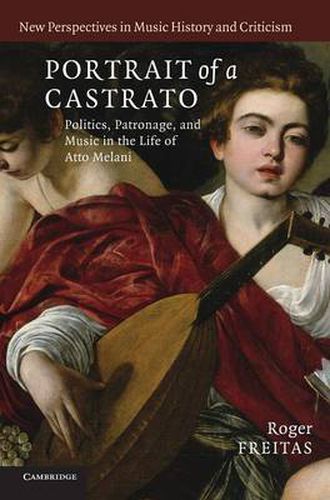Readings Newsletter
Become a Readings Member to make your shopping experience even easier.
Sign in or sign up for free!
You’re not far away from qualifying for FREE standard shipping within Australia
You’ve qualified for FREE standard shipping within Australia
The cart is loading…






This book explores the fascinating life of the most documented musician of the seventeenth century. Born in 1626 into a bourgeois family in Pistoia, Italy, Atto Melani was castrated to preserve his singing voice and soon rose to both artistic and social prominence. His extant letters not only depict the musical activities of several European centers, they reveal the real-life context of music and the musician: how a singer related to patrons and colleagues, what he thought about his profession, and the role music played in his life. Whether Atto was singing, spying, having sex, composing, or even rejecting his art, his life illustrates how music-making was always also a negotiation for power. Providing a rare glimpse of the social and political contexts of seventeenth-century music, Roger Freitas sheds light on the mechanisms that generated meaning for music, clarifying what music at this time actually was.
$9.00 standard shipping within Australia
FREE standard shipping within Australia for orders over $100.00
Express & International shipping calculated at checkout
This book explores the fascinating life of the most documented musician of the seventeenth century. Born in 1626 into a bourgeois family in Pistoia, Italy, Atto Melani was castrated to preserve his singing voice and soon rose to both artistic and social prominence. His extant letters not only depict the musical activities of several European centers, they reveal the real-life context of music and the musician: how a singer related to patrons and colleagues, what he thought about his profession, and the role music played in his life. Whether Atto was singing, spying, having sex, composing, or even rejecting his art, his life illustrates how music-making was always also a negotiation for power. Providing a rare glimpse of the social and political contexts of seventeenth-century music, Roger Freitas sheds light on the mechanisms that generated meaning for music, clarifying what music at this time actually was.